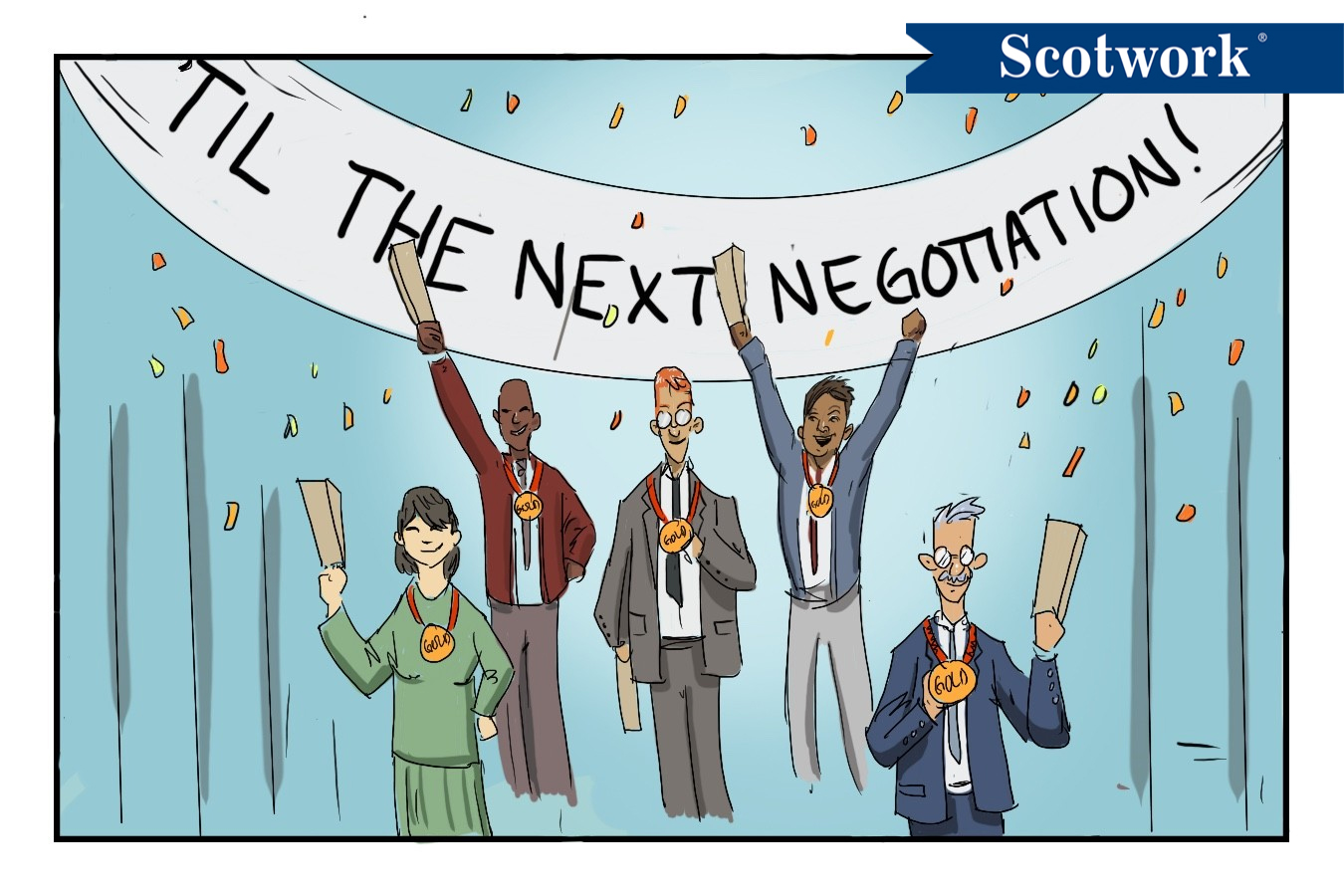Every Olympic athlete’s journey culminates in a singular moment: the closing ceremony. The event marks the end of a journey that included years of dedication, sacrifice, obstacles, failures, and successes. Similarly, when we negotiate an agreement, we have some of these same experiences. But unlike the Olympics, where medals are given for top performance, most negotiations end without flares or fanfare. So then, how is success measured?
I’ve always said that a successful negotiation is one that ends with a deal that both parties can support. However, that doesn’t mean every deal deserves a gold medal. Drawing from lessons of the Olympics, here are some ways to measure the success of your deals.
Achieving Your Goals and Objectives
The most obvious measure of success is whether you achieved your goals and objectives. Before athletes set foot on the Olympic stage, they identify clear goals that may include achieving personal bests, setting world records, or winning certain medals. Likewise, skilled negotiators begin with well-defined objectives and work towards them. These may include achieving specific terms, improving relationships, managing risk, or setting the stage for future negotiations.
In both arenas, the clearer the goals are, the easier it is to define a path to victory. For a negotiator, setting goals ensures you’ll know what a good deal is and is not. Clear goals empower negotiators to pursue, adapt, and achieve their objectives with flexibility.
Performing Under Pressure
Many Olympic competitions are won by mere fractions of a second. The pressure to succeed is immense because all competitors perform at a high level in their pursuit of medals. The same can be said for negotiators: The pressure to negotiate a successful deal can come from interested stakeholders, overbearing or competitive counterparts, time constraints, and many other areas.
How negotiators handle the pressure of a negotiation determines how well they stay focused on their objectives, maintain composure, manage future precedent, and build healthy relationships. In these high-pressure situations, how success is achieved is just as important as what is achieved.
Maintaining Healthy Relationships
You can see the Olympic athletes’ sportsmanship and camaraderie, even among the fiercest of competitors. While maintaining good relationships with your competition isn’t a requirement of an Olympic athlete, it almost certainly is with a negotiator.
Negotiations often include people who we deal with on a regular basis — clients, vendors, coworkers, bosses, subordinates, friends, and family. Therefore, a successful negotiation should also be measured by the health of the relationship with the other side after talks conclude. Maintaining a relationship, or even strengthening it, during a negotiation is a great indicator of success.
Creating a Deal Everyone Can Implement
As I’ve said before, a successful negotiation is one that all parties are willing to implement and support. Consider Olympic athletes, who support the outcome of every event regardless of their personal results. That’s what makes Olympic competitions work.
In commercial negotiations, there are many ways to achieve success and craft deals that everyone can support. Since negotiations don’t always go as planned, skilled negotiators are creative in their approach, flexible in their strategy, and laser-focused on their objectives. That’s what helps them create “win-win” outcomes.
Reflecting and Learning
Finally, the closing ceremonies are a time for reflection. Every athlete will review their performance and look for opportunities to improve. This step is often overlooked by most negotiators.
Skilled negotiators will take the time to debrief and analyze their deals. They will document the strategies that worked and deconstruct and improve the ones that didn’t. They will think about how lessons learned in this negotiation will impact their future negotiations. That said, another measure of success is being smarter and more skilled for the next negotiation.
As we say goodbye to the 2024 Summer Olympics in Paris, I’m thinking about all the athletes and the amazing competitions we witnessed. I’m also thinking about all the negotiators we consult with and train. May the closing ceremony of your next negotiation be filled with achievement, exuberance, and reflection. Here’s to your next gold medal negotiation.
We Can Help You Achieve Gold Medal Negotiations.
For world-class results in every aspect of your negotiations, rely on Scotwork. We’ve helped clients achieve success in the negotiation arena for 50 years. Get in touch to go for the gold!

